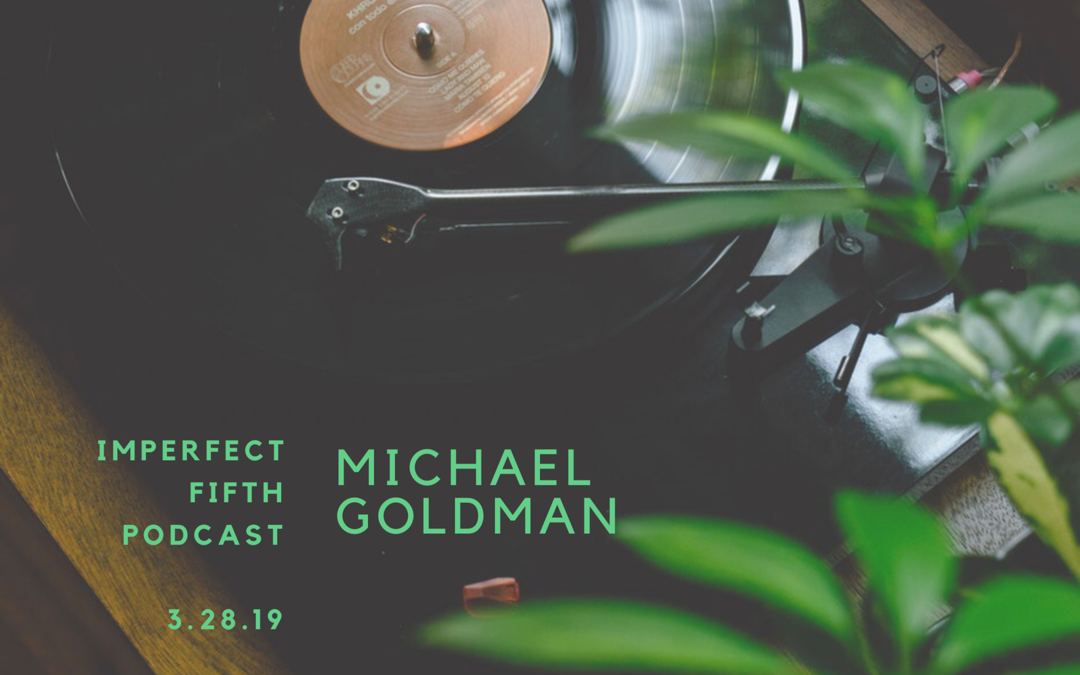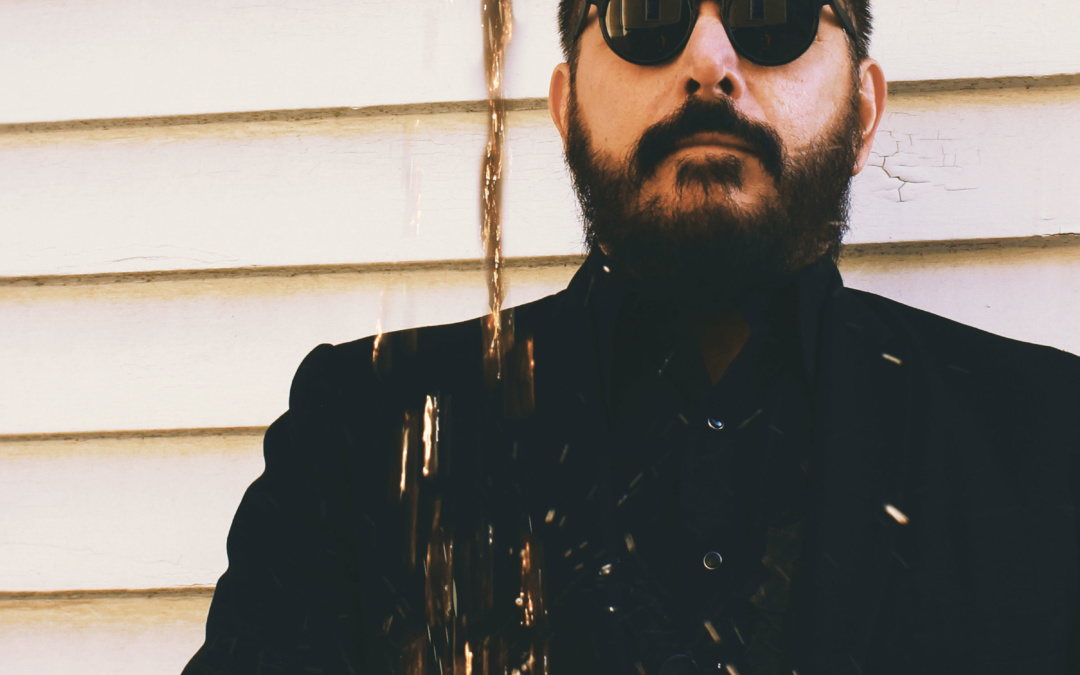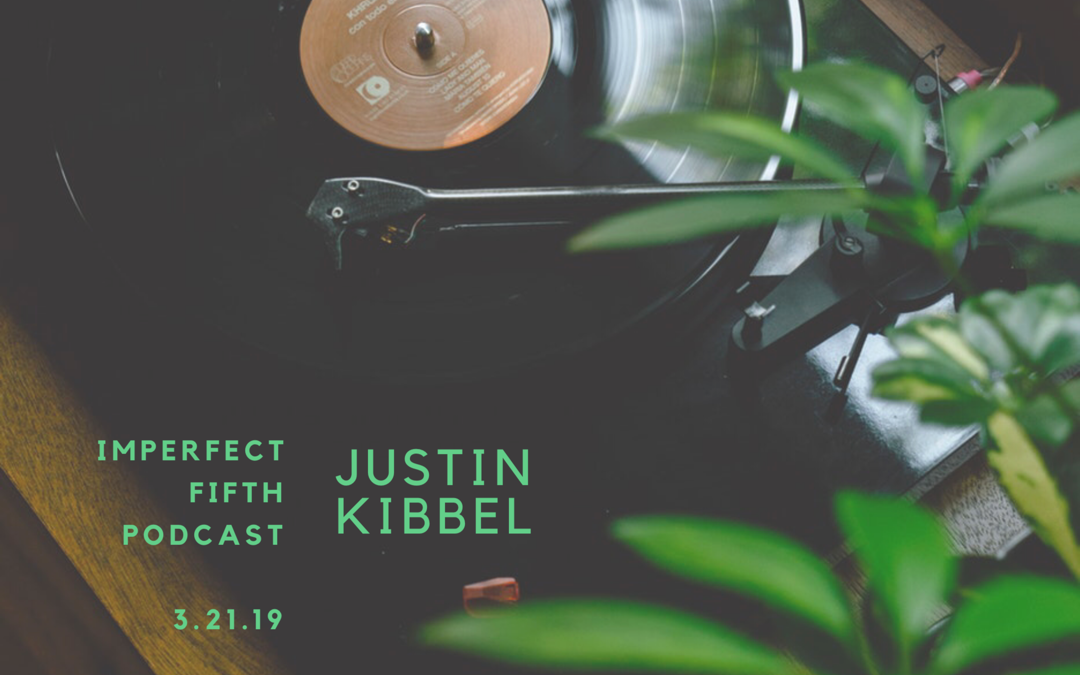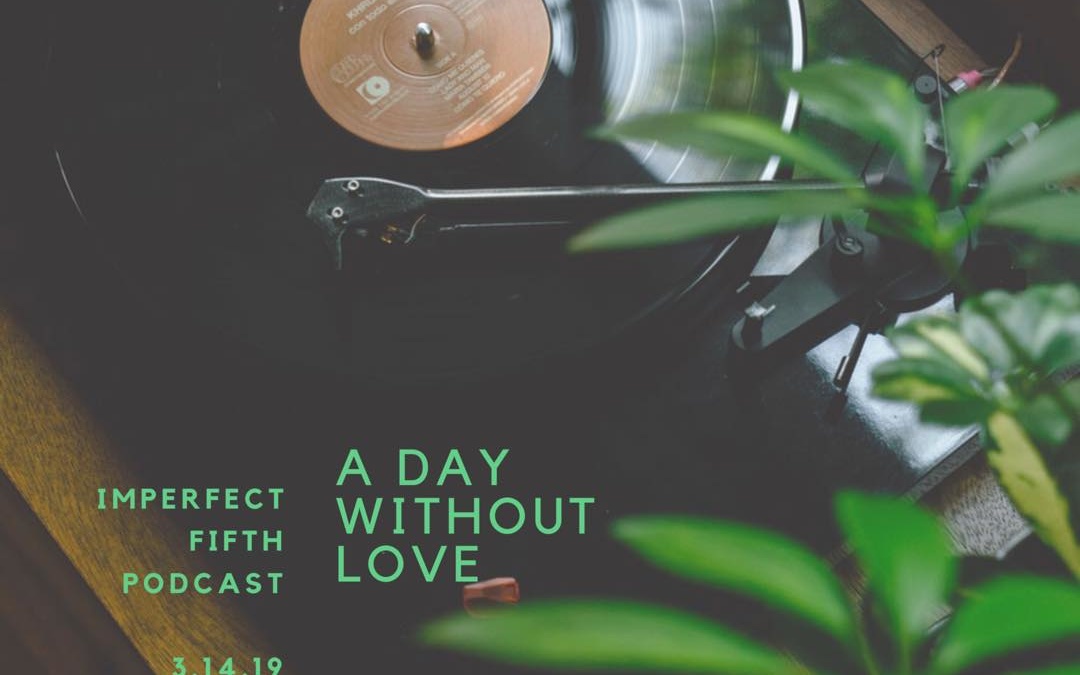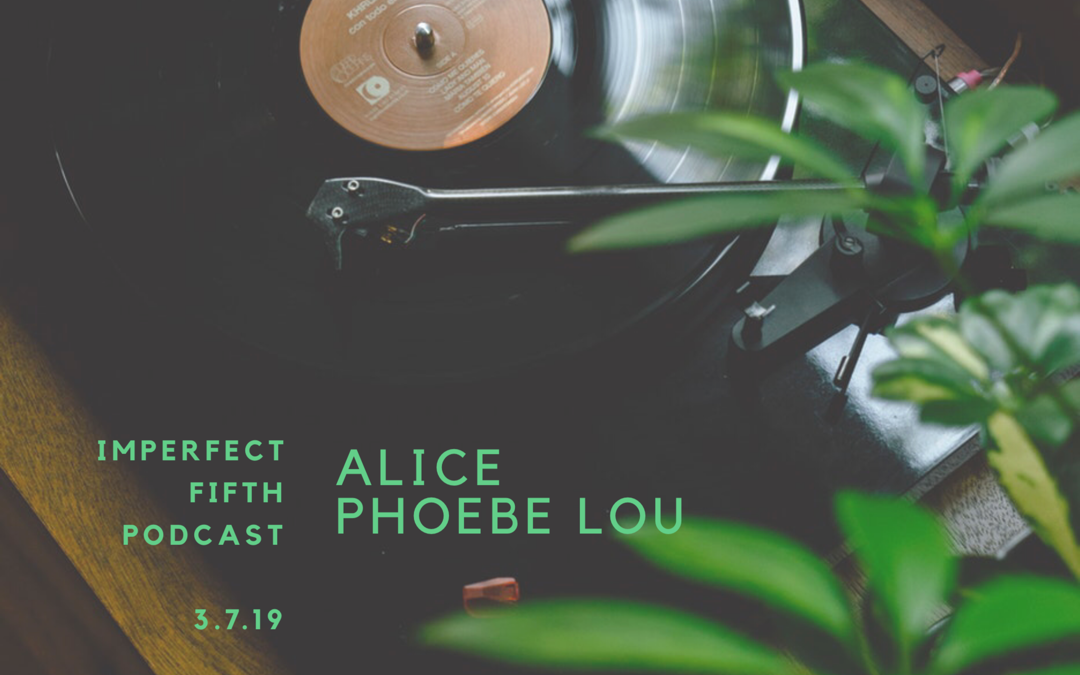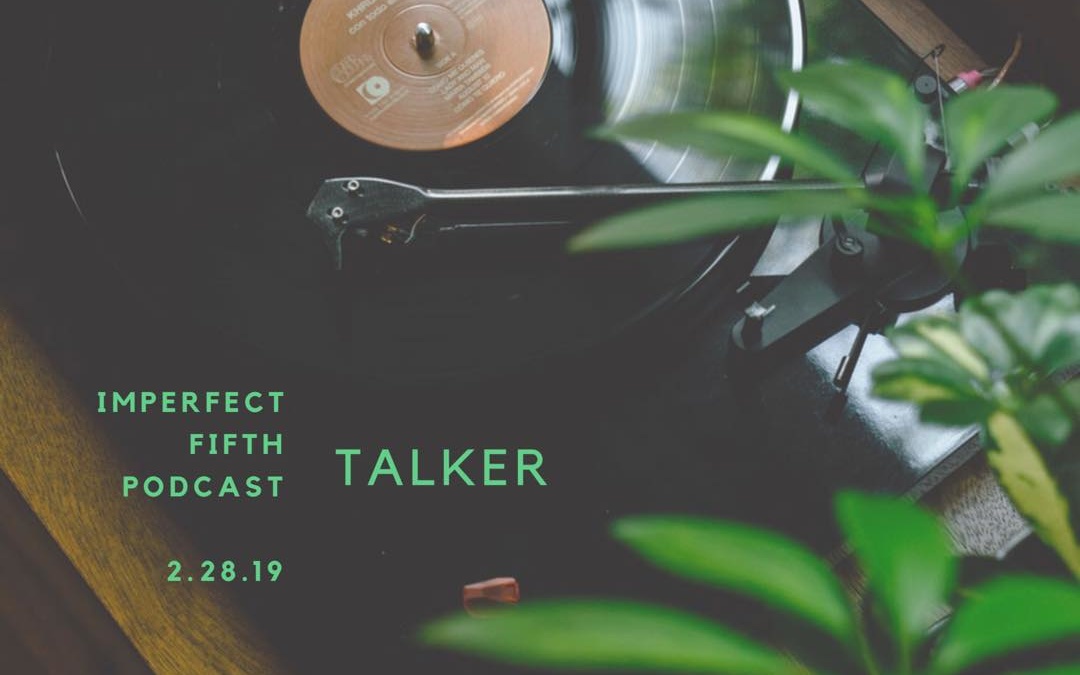
by Meredith Schneider | Mar 28, 2019 | 5 to 7, Featured
Today, we sit down with Los Angeles-based musician Michael Goldman, who spearheads his own musical project NONA while being the bassist for AWOLNATION and hosting his own podcast called In The Band.
0:00 Intro
0:11 EZVisibility.com
0:22 Dbl-take.com
0:33 imperfectfifth.com/merch
1:03 Michael Goldman intro
1:46 Royal’s in Louisville
2:52 Chasing Kings
4:02 Crosby, Stills, & Nash and The Beatles
6:25 Volleyball
8:02 NONA
10:52 In The Band podcast
15:20 “I’m Not Trying” {{intro to podcast}}
16:42 Upcoming album
19:20 AWOLNATION
22:46 Conspiracy Theories
28:04 Aliens
31:05 Sasquatch
32:35 Rugrats
34:50 Family

by Phlis | Mar 28, 2019 | 5 to 7
On April 5th, Drunken Prayer (Morgan Geer) will release his latest full-length, Cordelia Elsewhere. We took a few minutes to chat with him about his evolution as an artist, superstition, and the new album at length. Check it out below!
___
For everyone in Europe we find it hard to grasp the sheer size of the US, as a touring musician when you do a coast to coast tour of the USA just how long does it take and how does the touring experience differ from other countries?
It takes about 5 days to comfortably drive from coast to coast. I’ll be playing maybe 10 shows on the way to the west coast. It’ll take me about 3 weeks to get to LA from Asheville, North Carolina. In that time I’ll be stop in Austin and Albuquerque to rehearse two different groups of musicians for local shows. I could do it faster but on long tours like this it keeps me sane to stop and watch a few sunsets.
You will soon be releasing Cordelia Elsewhere, tell us a little bit about your fifth album.
I had a lot of music but the lyrics were a little shaky. After the 2016 presidential election I found a voice for the record though. This is the closest to a concept record as I’ve done in that regard. Some songs came very quickly, others, like “Rubble and Dust”, required a little thought. I go down a lot of rabbit holes lyrically and have to reel myself in sometimes.
Superstition forms part of the background behind Cordelia Elsewhere, why did you choose superstition as part of the basis of the album?
I’m not sure I consciously chose any superstitious themes. I brood on what lies behind the veil and the unexplained so it’s natural that what I write about. Some of those rabbit holes are filled with me writing without thinking and reflecting afterwards.
There are certain places in the world where superstition is something very big and they truly believe the tales, do you have a certain favourite superstition?
I think wet bread is bad luck.
I come from an Irish Catholic family – apparently you’re supposed to bury a statue of St. Joseph upside down in your yard, under the for sale sign, if you want to sell your house.
They say you should never meet your heroes, but what was it like when you met one of yours Tom Waits?
I wanted to throw up. It was surreal because it came at a time when I was listening to him more than usual. Whenever we talked I would walk away nauseous. I’ll never forget the way my name sounded coming out of his mouth. It was a peculiar feeling.
Your music keeps to them authentic American roots, what is the importance to you of keeping those roots imbedded in your music?
I don’t know that it is that important. Neither is speaking English but it’s what I know. Coming from a musical family that veers toward traditional jazz, country and blues, it’s a familiar voice that comes naturally. I try to stay insulated without isolation. It keeps me open but grounded. When I allow myself to follow every whim I turn into a gross mess.
Why have you decided to have the homesick theme in some of your songs, what makes you so good at conveying these feelings?
I grew up a little lonely sometimes. I was the only child of a single working mother and we moved around a lot. That left me with competing feelings of restlessness and a desire for a forever home. I identify with sad songs.
Why do you feel that Cordelia Elsewhere is your strongest album as Drunken Prayer to date?
It was recorded by a gifted engineer, Brian Landrum, and mixed by the great Mitch Easter from Let’s Active. We played the songs one after the next in a one room backyard studio with only necessary overdubs. The songs on this one came pretty easily all in all as well. That’s usually a decent barometer. When I have to labor too hard over something, it usually sounds fussy. I don’t think it’s a cluttered record.
The whole way in which artists make music and how people buy and listen to music has changed drastically technologically both for the good and the bad. Do you as an artist embrace that technology or do you prefer the older ways, and why?
More and more songs are heard as singles, separated from the album, like the early 45s. That idea has kind of come full circle now that you can upload singles directly to online distributors like CDBaby. I like good sequencing so I tend to buy entire albums, usually vinyl records. Not because they sound better – I’d never know the difference on my cheap system – but I like the machinery and the tactile quality of 12” records and the big art.
Also with the technology comes freedom for you as an artist, long gone is the time when a record label tells you what to do. What do you think are the negatives of this on the music industry as a whole?
There’s a lot more noise to sift through. I use streaming services, especially on tour, but sometimes listening to music in my bubble or personalized playlists gets old. A good radio station is a curator you can trust.
Every place has a different feeling musically, but yet your music is American. Are there certain songs which musically it could come from a certain place in America and if so which songs?
“Four Leaf Clover” started off more as a cajun song. It’s some of the prettiest music there is.
“Rubble and Dust” reminds me of the desert even though it name drops Bend, Oregon. It ended up with what I’d consider a Topanga Canyon sound. That was a happy accident.
Your father and your mother father played Jazz and Dixieland, how has this affected you musically?
For as many generations as anyone can recall, everyone on my mother’s side was some sort of musician. So being a musician of any level of success was an honorable pursuit. There was a point when I thought about maybe going into theology or law but it seemed wrong not to follow the musical wind at my back.
Thank you so much for giving Imperfect Fifth this interview, anything you would like to add?
If you go down to the woods today, you better not go alone.
___
Keep up with Drunken Prayer here.

by Meredith Schneider | Mar 21, 2019 | 5 to 7, Featured
Justin Kibbel is a saint. OK, perhaps that’s stretching it… but only a teensy bit. The man is a well-known music industry player in Madison, WI, works for an incredible new venue, runs his own label, and manages a unique and magical indie pop duo named Seasaw. When (if) he has free time, he tends toward international travel, so he’s got some tricks up his sleeve for us on today’s podcast.
What you can probably glean from all of this as that good people exist, you just have to find them. We are so proud to have worked with Justin in the past, and cannot wait to see what the future holds for This Means War!
Dig into our previous episodes of the podcast any time at imperfectfifth.com/podcast!

by Meredith Schneider | Mar 14, 2019 | 5 to 7
Happy Pi Day! We are over here celebrating with some apple pie and basketball, but first thing is first: a new podcast episode. For our 4th installment, we sit down to chat with Philadelphia-based A Day Without Love (Brian Walker) about the way he serves his community, his music influence, and, of course, anime.
0:00 Intro
0:11 EZVisibility.com
0:22 Dbl-take.com
0:33 imperfectfifth.com/merch
0:56 Brian Walker/A Day Without Love Intro
2:18 Influence (Anthony Green, Bright Eyes)
4:02 “You Said”
6:15 “Fashit”
9:07 Songwriting process
14:45 The Storyteller’s Tour
16:53 Food
21:20 “People I Meet and the Food I Eat”
22:33 Philadelphia DIY Collaborative
28:39 Aliens
29:58 Anime
34:33 Patreon
Keep up with A Day Without Love here.

by Meredith Schneider | Mar 7, 2019 | 5 to 7
Today’s conversation is a sit down with songstress Alice Phoebe Lou, whose album Paper Castles is out tomorrow, March 8th. The lead up to this release has proven insane for her, as – since we spoke – Robert Plant opened up for her in Leeds and she recorded a Daytrotter session with Paste. Listen on for more.
0:00 Intro
0:11 EZVisibility.com
0:22. Dbl-take.com
0:33 imperfectfifth.com/merch
0:47 Intro: Alice Phoebe Lou
2:04 Portishead
3:09 South Africa
6:13 “Galaxies”
8:19 Paper Castles
10:25 Upcoming tour
13:14 Psychics
15:43. Self care
18:02. Living in the moment
Paper Castles is out March 8th. Keep up with Alice Phoebe Lou here.

by Meredith Schneider | Feb 28, 2019 | 5 to 7, Featured
A few weeks ago, we had the distinct pleasure of sitting down to chat with Talker while she was revving up for the release of her debut EP Horror Films. We also got to speak about energy healing, life in Los Angeles, growing up in the same metropolitan area, and other fun thoughts! Since then, Horror Films has made its debut as well, so you’ll want to check that out. (But only after you listen to our podcast.)
DOWNLOAD HERE
1:03 – Joshua Tree
3:47 – Sacramento
8:34 – conception story
12:13 – writing process
13:33 – new music video
18:00 – new EP
20:28 – Frenship
22:44 – things to do in LA
25:36 – energy healing and crystals
28:43 – sloth
37:17 – The Great British Bake Off
Keep up with Talker here.
